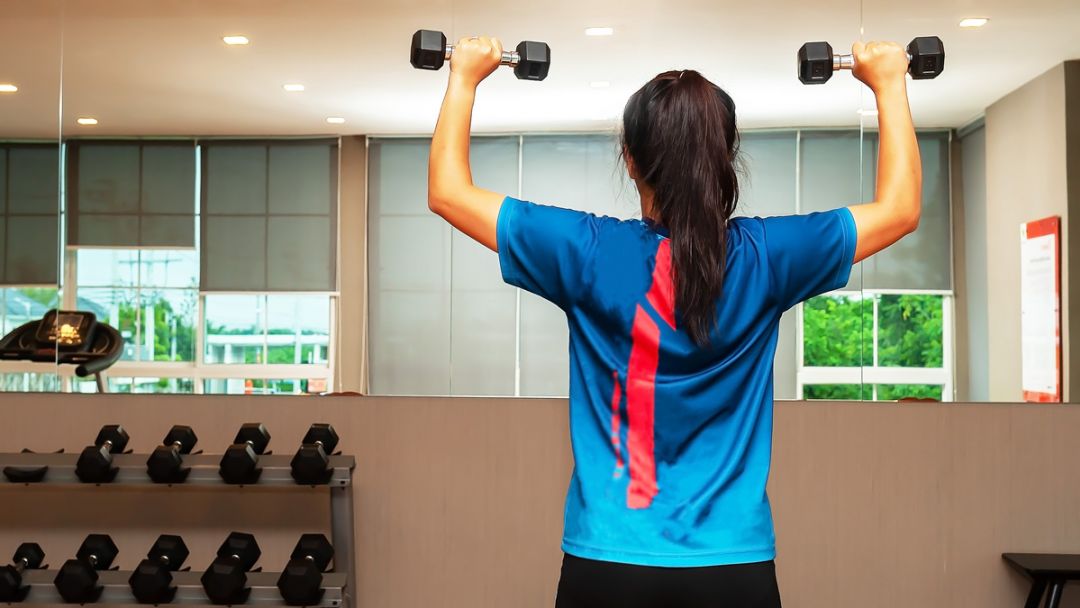Sport is not for All – but it is a life-enhancing activity for many

Whilst Sport may not be for All, its ability to connect people and generate a sense of purpose and belonging is more significant than ever in a society dominated by solitary activity. Functional conditioning - in gyms and elsewhere – may have spectacular health benefits, but can be a limited social experience. Read recent reflections on a gym visit.
I have just come home from a visit to the gym. Having spent the majority of my life training ‘for’ things: exercising to improve performance – in teams, in running events, for specific challenges – I now exert myself purely for functional health reasons. With more adults than ever becoming active, and maintaining this later into life, I am clearly not unusual in this.
Would I go if it were not for the clearly identified, widely articulated and bewilderingly extensive benefits to health ? On balance, probably not. A large windowless room resembles a factory for fitness, with the component parts moving from one stage of the process to the next and eventually falling off the assembly line into the spa. There is not a lot of smiling, and little apparent enjoyment.
What is most notable though is the absolute absence of human interaction. Eye contact is rare, and engagement rarer. Devices inserted into ears are a symbol of unavailability for conversation. Phones are everywhere, providing distraction. Calls to unknown collaborators are commonplace; texting between sets frequent. Joy is invisible.
There is little sense of community. Indeed, the presence of others impedes access to the most favoured equipment, and is therefore to be avoided. Visiting at a quiet time is therefore the optimum experience.
This is the opposite of sport.
In the two years that I have been a member of a lavish health club, I have spoken to a very small number of people. I have made no friends. This may be a reflection of an anti-social inclination, though I console myself in the knowledge that I still connect warmly with team mates from sports played decades ago. I remember specific incidents, triumphs, disasters and excursions vividly, and the memory still stimulates a cocktail of feelgood hormones. I imagine it always will. I recall those incidents clearly, despite forgetting the names of the people I met last week.
Sport is not for all. Generations of people have been disengaged from active adulthood by poor experiences of games at school. Being ‘bad’ at games is a sentence that long endures. For some it is remedied in later life by re-engagement through events such as Park Run, Race for Life and Pickleball. It might include attendance at the gym. Others are irrecoverable, and condemned to a sedentary lifetime of increasingly limited physical capacity, and vulnerability to an extensive range of hypokinetic diseases. Many will never experience the pure pleasure of teamship – the powerful combination of physical endeavour, collaboration and camaraderie. My other exercise outlets are the opposite of the gym experience: the golf club, hill walking fraternities, cycling communities. And I still feel welcomed and valued in sports clubs where I played a generation ago. It can’t just be me that has become suddenly introspective.
Raised awareness of mental health has acknowledged the power, and significance, of human engagement. In a society dominated by solitary activity, screens, wireless earpieces and working from home, connection to others is more important than ever. When exercise becomes a functional and lonely activity, its impact is impoverished. A young person advised me recently that the gym is the new pub. Whilst it might be a primary leisure activity of choice for a more health-conscious generation, it is less effective as an environment which connects people in a community of mutual endeavour, respect and support. Team games are certainly not for everyone, but for 150 years they have built connections between people and enriched lives. In that respect, if no other, they are more important than ever. But numbers taking part in all games continue to decline, and are replaced by a more functional and Stakhanovite approach to physical health. Clearly, this is infinitely superior to inactivity, and the impacts are clear in the ability to move heavy weights that don’t need to be moved. ‘The Gym’ provides efficient, health-promoting physical activity that is effective and easily accessed.
Exercise purely for the benefit of improving biological mechanisms is an artificial construct, devised by industrial societies to address health issues arising from sedentary lifestyles. Children given access to playgrounds play games, or create activities, which achieve interaction and put smiles on red faces: they rarely construct exercise routines in solitary sets of ten repetitions.
I shall continue to visit the gym, and establishing this as a habit has upgraded disinclination into indifference. But I will remember much more fondly days of team games and the incomparable human connection that accompanied them. The lifelong friendships and the identity of being part of a group of like-minded people devoted to a common goal; the feeling of belonging, and being valued. I have no such connection with the shoulder press machine.